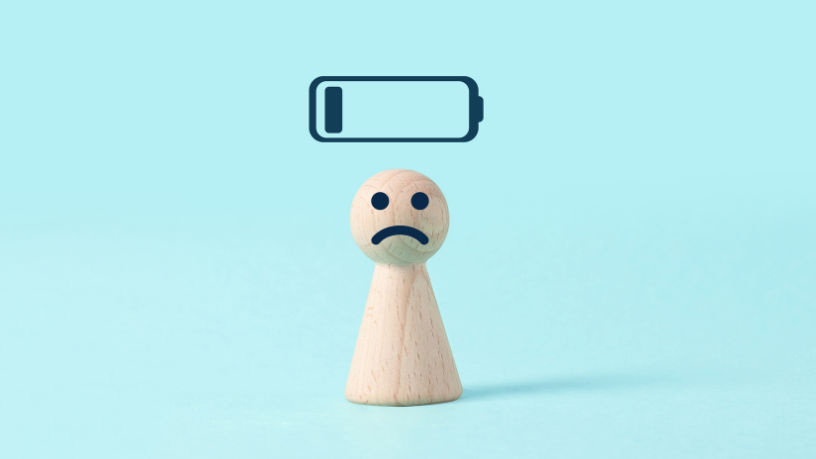Identifying whether you have low emotional intelligence can be a transformative step in both your personal and professional life. According to Professor Bruno Garcia Redondo, understanding your own emotions and knowing how to manage them is one of the cornerstones of mental balance and healthy social interaction. However, this skill is not always well developed, which can lead to conflicts, difficulty handling pressure, and even setbacks in your career.
That said, people with low emotional intelligence often display behavior patterns that hinder the development of stable relationships and the resolution of everyday problems. With that in mind, keep reading to learn how to identify the symptoms of low emotional intelligence and discover the first steps to building this key competency.
What Characterizes Low Emotional Intelligence?
Low emotional intelligence is marked by difficulty in recognizing and regulating one’s own emotions, as well as in understanding the feelings of others. As Bruno Garcia Redondo points out, this limitation can directly affect how a person responds to criticism, deals with frustration, or resolves interpersonal conflict.

One of the main indicators is emotional impulsiveness, where disproportionate reactions arise in response to routine situations. Additionally, there’s a tendency to blame others for personal problems and to adopt a consistently defensive posture, which inhibits active listening and empathy.
Another relevant point is the difficulty in accepting feedback. Individuals with low emotional intelligence often feel personally attacked when receiving criticism—even when it’s constructive—and may respond with aggression, self-victimization, or withdrawal.
What Behaviors Indicate Low Emotional Intelligence?
Certain recurring behaviors serve as red flags for low emotional intelligence. According to Professor Bruno Garcia Redondo, paying close attention to your own reactions is a key part of starting the self-awareness process. Below are some of the most common signs:
Difficulty controlling impulses: Outbursts of anger or sadness over trivial matters suggest poor emotional regulation.
Frequent relationship issues: Ongoing conflicts with coworkers, friends, or family may reveal a lack of empathy or poor listening skills.
Need to always be right: A strong resistance to considering other points of view can signal emotional egocentrism.
Inability to recognize personal flaws: Limited self-evaluation and a habit of shifting blame are common behaviors.
Emotional instability in response to criticism: Insecurity and negative reactions to others’ opinions are also strong indicators.
Recognizing these behaviors in your daily life is the first step toward developing more mature emotional intelligence. Small adjustments in how you respond to situations can have a lasting positive impact on your relationships and self-confidence.
How Can You Tell If Your Emotions Are Controlling Your Decisions?
Often, low emotional intelligence reveals itself in impulsive decisions driven by emotions such as fear, anger, or frustration. As Bruno Garcia Redondo explains, such decisions usually lack rational consideration of context, undermining clarity and leading to future regrets. So, if you frequently make hasty decisions or overreact, it could be a sign that your emotions are overpowering your reasoning.
@brunogarciaredondo0 Bruno Garcia Redondo explica como a inteligência emocional impulsiona sua carreira O professor Bruno Garcia Redondo destaca a importância da inteligência emocional no ambiente de trabalho. Desenvolver autoconhecimento, empatia e controle emocional pode ser o diferencial para alcançar crescimento profissional e melhorar o desempenho. #BrunoGarciaRedondo #BrunoRedondo #BrunoGarcia #QueméBrunoGarciaRedondo #OqueaconteceucomBrunoGarciaRedondo #ProcuradorBrunoGarciaRedondo #ProcuradordauerjBrunoGarciaRedondo
♬ original sound – Bruno Garcia Redondo – Bruno Garcia Redondo
This imbalance not only affects personal judgment but also disrupts relationships—especially in professional environments. Therefore, regularly reflecting on your behavior and seeking honest feedback are valuable tools for identifying these situations and beginning a process of continuous improvement.
First Steps to Develop Emotional Intelligence
Even if you notice signs of low emotional intelligence, it’s important to understand that this skill can be developed. According to Professor Bruno Garcia Redondo, growth requires conscious effort, but it is entirely possible to improve through practical actions in daily life. Here are a few essential guidelines to begin this journey:
Practice self-awareness: Dedicate time to reflect on your emotions, triggers, and behavior patterns.
Learn to listen with empathy: Listening without interrupting and with genuine attention helps strengthen relationships.
Develop self-regulation: Pause and take a deep breath before reacting. This helps avoid impulsive responses.
Seek honest feedback: Ask trusted individuals how you handle emotions and where you can improve.
Invest in personal growth: Read books, attend workshops, or consider therapy to deepen your emotional development.
When adopted consistently, these practices promote emotional intelligence growth. Over time, you’ll likely experience more balanced relationships and greater clarity in your decisions.
Why Is Emotional Intelligence So Highly Valued Today?
Emotional intelligence has become one of the most sought-after skills in today’s job market. Companies increasingly value professionals who can handle pressure, work well in teams, and remain composed in challenging situations. Emotionally intelligent people contribute to healthier work environments, demonstrate resilience, and adapt more easily to change.
Moreover, the ability to maintain positive relationships and resolve conflicts with empathy is a competitive advantage in any career. On a personal level, this skill is equally essential—it enables individuals to live more authentically, make more conscious decisions, and build stronger, more balanced emotional bonds, as emphasized by Bruno Garcia Redondo.
Developing Emotional Intelligence Is an Investment in Yourself
In conclusion, recognizing the signs of low emotional intelligence is a brave and necessary step for anyone seeking personal and professional growth. Working on this skill directly impacts how we relate to the world and to ourselves. By observing your behavior, embracing criticism with maturity, and cultivating empathy, you pave the way for a more balanced, productive, and mindful life. In other words, emotional intelligence isn’t a fixed trait—it’s a skill that can (and should) be nurtured every day.
Author: Clodayre Daine









